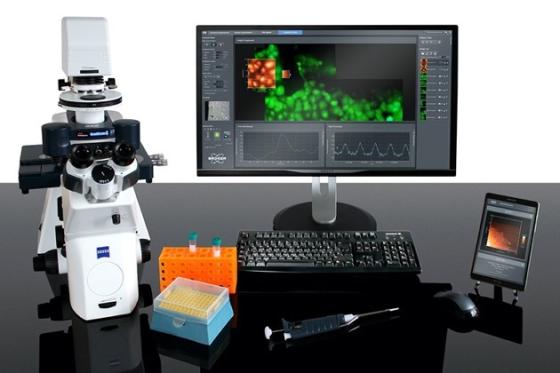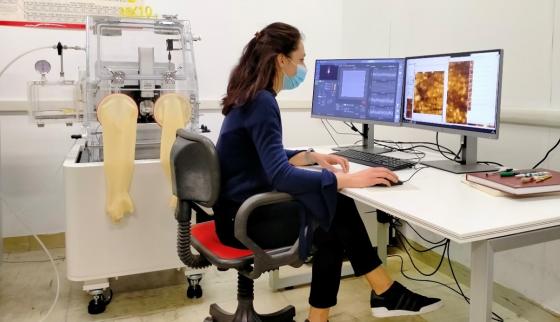The AFM NanoWizard IV (NW IV) from Bruker is currently in operation at DIFILab. The machine allows the acquisition of surface morphology with a maximum scan area of 100 µm x 100 µm, with a z-range of 15 µm, and it was chosen for its high performance in terms of resolution and for its extreme flexibility which allows for optimal coupling with optical and spectroscopic techniques.
The instrument is installed on an inverted microscope, offering an ideal configuration for studying biological samples, typically grown on transparent substrates, as well as nanostructures, Self-Assembled Monolayer, thin layers, porous materials, 2D materials, etc.
The BioMat module allows correlating AFM measurements with optical/spectroscopic measurements acquired from an upright microscope, significantly increasing the ability to analyze non-transparent samples (e.g. nanostructured silicon, etc.).
The NW IV is the ideal tool for coupling with optical super-resolution techniques. The coupling between the NW IV and the Stellaris 8 microscope (Leica), also installed at DIFILAB, offers a system for correlative microscopy unique in performance. The NW IV-Stellaris 8 integrated system is accessible to researchers outside the University of Genoa within the European project MOSBRI (MOlecular-Scale Biophysics Research Infrastructure, www.mosbri.eu).

To control environmental conditions, a PARK NX10AFM, (scan range 50 µm x 50 µm, z-range of 10 µm) is installed in a glove box where image acquisition can be performed in a controlled atmosphere, e.g., dry nitrogen for reduced humidity. This AFM can also operate in non-contact mode with a conductive cantilever, oscillating at its resonant frequency.
By applying a voltage potential, the resulting electrostatic signal provides information on surface conductivity, capacitance gradient and local work function of the material (Kelvin probe force microscopy - KPFM).


